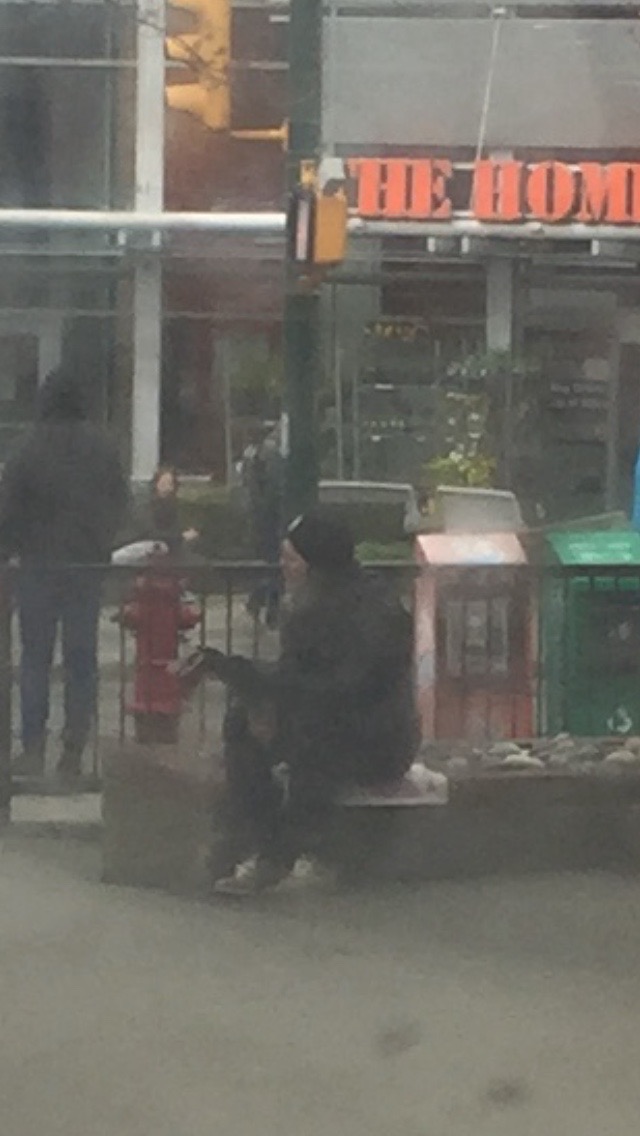How Vancouver Tourism Lacks Social Responsibility
This photo was taken in the Cambie and 8th shopping area where one can find Save-On Foods, The Home Depot, Home sense, and an assortment of restaurants with a grand variety of food.
Vancouver tourism is targeted toward advertising our amazing food options, shopping malls, wildlife, and potential for adventure.
But something is left out: the homeless within and throughout, but especially in the Greater Vancouver area. Homelessness is a problem that Vancouver has faced for a long time, and it can be seen through the people trying to keep warm outside of shops, restaurants, and other places of luxury that thousands of people pass every day. It is a huge part of the Vancouver experience, as it is impossible to miss even when visiting for a short time.
Vancouver’s homeless are ignored even though they constitute an important aspect of Vancouver. It is not a glamorous topic but it is a striking aspect of the Vancouver community that those who live here know very well. Poverty is an uncomfortable and complicated topic which leaves little enjoyment to those who engage with its reality. However, this does not excuse the lack of social responsibility that Vancouver tourism has displayed in ignoring it as a part of Vancouver.
Within Gada Mahrouse’s article “Feel-good tourism: An ethical option for socially-conscious Westerners?” she explains socially responsible tourism as a term used by actors within tourism to describe ways in which they can become more ethically responsible towards impacts of tourism on different countries. In her article, Mahrouse criticizes some specific practices and their use of this term to lure tourists in but not fulfil their promise; however I believe that this term can be rejuvenated when used appropriately and fully towards aquiring social justice.
It is clear our tourism agencies have chosen to show a blind eye to the issue of homelessness within our streets, instead of taking social responsibility for the reality of the place they advertise for. Rather than ignore this topic, perhaps it may be more socially responsible to engage with it in an appropriate manor. Acknowledging the problem many of our citizens face and advertise productive ways others can help may be a good place to start.
This could come in the form of tourism adds taking a second to display information on non-for-profits, projects, and charities that aim to end poverty in the Vancouver area through any means.
Providing food, temporary shelter, and safe injection sites are all a great way to start helping. So if you’re a tourist in a new place and see an issue such as this it is helpful to know ways in which you can help, even in the smallest ways.
By ignoring poverty within Vancouver, the tourism industry is also normalizing a sense of Us and Them. This attitude is created through feelings of discomfort and distancing from those who need help the most. When the issue is purposefully ignored, others gain encouragement that ignorance is an acceptable response.
Poverty is an important issue that shouldn’t be left ignored by large industries like tourism that have a social responsibility to acknowledge the full scope of what one will encounter when they visit Vancouver and how they can help.
References
Mahrouse, G. (2011). Feel-good tourism? An ethical option for socially-conscious westerners. ACME:
An International E-Journal for Critical Geographies, 10 (3), 372-391.
